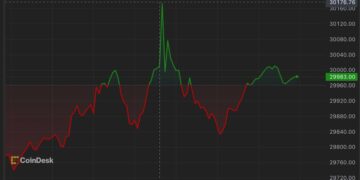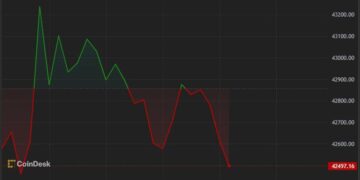
I am 26 years old and invest Rs 1,000 monthly in the following mutual fund schemes: Quant Mid Cap Fund, Quant Tax Plan ELSS, SBI Long Term Equity Fund ELSS, Mirae Asset Tax Saver Fund ELSS, UTI Nifty 50 Index Fund, HDFC Index S&P BSE Sensex Fund, HDFC Small Cap Fund and ICICI Prudential Corporate Bond Fund (Debt). Should I alter these for maximum wealth creation?
Prableen Bajpai, Founder, FinFix Research and Analytics:
Your mutual fund portfolio is spread across eight schemes, with a total allocation of Rs 8,000. Too many schemes, especially from the same category, will result in duplication and make portfolio management difficult over time. Restrict the equity portion of the portfolio to one tax-saver fund (if needed), one mid-cap fund, one large-cap index fund, and one small-cap fund in the initial phase. Both, Nifty 50 and S&P BSE Sensex, offer exposure to the top companies. Hence, one is enough as a large-cap scheme. Likewise, among tax-saver schemes, Rs 3,000 can be directed to one scheme. You can alternatively use the EPF/PPF for creating the fixed income part of your portfolio, while using it for tax deduction. While the EPF/PPF will complement your long-term equity portfolio, a debt fund will help build a corpus for near-term goals, such as travel, big purchases, etc. In addition, create a contingency fund equivalent to 12 times your monthly expenses and commitments (EMI, SIPs, premiums). This can be parked in a liquid fund or sweep-in fixed deposit for emergencies. Build a mutual fund portfolio with a mix of active and passive schemes. Don’t chase the best performing schemes. Hold the schemes during downturns and exit only if there is consistent underperformance for 6-8 quarters, compared to peers and benchmarks. Also ensure adequate life and health insurance for yourself.
My present CTC is Rs 9.15 lakh and I draw a yearly bonus of about Rs 1.85 lakh. I have opted for the new tax regime. Please let me know if investment in the NPS can help cut taxes. If yes, then how much should be the amount and how can I go for it?
Amit Maheshwari, Partner, AKM Global: As per the provisions of Section 115BAC of the Income-tax Act, 1961 (new regime), a taxpayer is allowed to avail of the deduction for employer’s contribution in the NPS. As per Section 80CCD of the Income-tax Act, 1961, the deduction should not exceed the threshold limit of 10% of contribution made by the employer from the salary of taxpayer. Since you have opted for the new tax regime, 10% deduction from your employer’s contribution to the NPS can be availed of by you.
I am a 36-year-old married man with a child. My monthly salary, after tax, is Rs 5.8 lakh. I have real estate worth Rs 3 crore. My equity portfolio has mutual funds worth Rs 2.2 crore and stocks worth Rs 25 lakh. I stay on rent and my monthly expenses are Rs 2.5 lakh. I want to retire by the time I am 50 years old. How should I go about achieving this?
Anupam Guha, Head, Private Wealth Management, ICICI Securities:
With disciplined investment for the next 14 years, and assuming inflation to be 5%, you should be able to retire at 50 with your current lifestyle. This is assuming a life expectancy of 80 years. You need to invest your surplus of Rs 2.3 lakh per month through SIPs in a mutual fund portfolio. With 10-12% CAGR in your portfolio, including the current Rs 2.45 crore, and 10% annual hike in the SIP amount, you will have sufficient funds to retire. Make sure you have adequate life insurance for yourself, and medical insurance for yourself and your family. Your mutual fund portfolio can be divided equally in the following funds: HDFC Flexicap, ICICI Pru Flexicap, Nippon India Multicap, Kotak Equity Opportunities and ICICI Pru Multi Asset. This basket of funds will create a diversified portfolio that performs across market cycles.
I am a 34-year-old PSU engineer. I have been investing in mutual funds through SIPs for the past six years. Recently, I changed a few schemes and funds due to underperformance. Should I hold the accumulated money in the previous funds or redeem and reinvest in the newly opted funds? Which option is more tax-efficient and better for long-term compounding? I plan to stay invested for at least six more years in all of these schemes.
Rushabh Desai, Founder, Rupee With Rushabh Investment Services:
From the taxation point of view, if you redeem from your previous funds, you will be taxed on the gains as per the equity taxation rules. If your funds have underperformed by a large margin from their benchmarks, and have been consistently underperforming on a daily rolling basis over 7-10 years, you may think of reinvesting in the consistently performing funds. If, however, the funds have underperformed by a small margin, you can think of holding the accumulated money in these schemes to avoid tax on the gains. At the same time, if your old and new funds are over-diversifying your portfolio, you should redeem from your underperforming funds and reinvest in the consistent ones. Reinvesting in a few days won’t affect your long-term compounding process. However, not cutting loose from the funds that have underperformed over the long-term by a big margin may lead to opportunity loss, which may drag down the optimum returns of your overall portfolio. It is important to keep in mind that it is normal for funds to underperform in the short term and even in a 5-7 year time frame. Every fund will have cycles of out- and under-performance. The key is to diversify well across different AMCs, funds, categories and styles, and select funds with top quality management and managers, and robust long-term consistent track records.
Ask our experts
Have a question for the experts? etwealth@timesgroup.com














